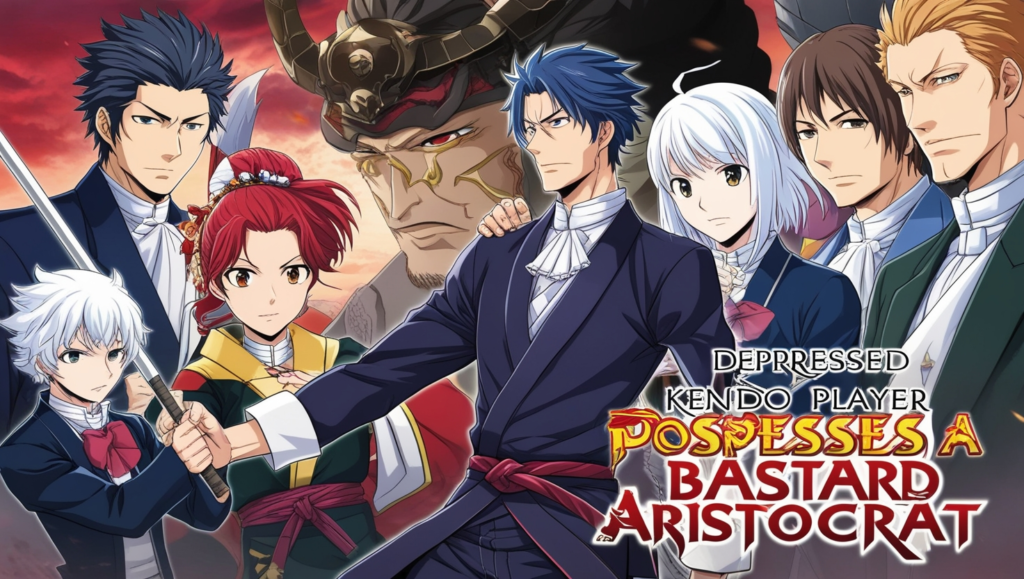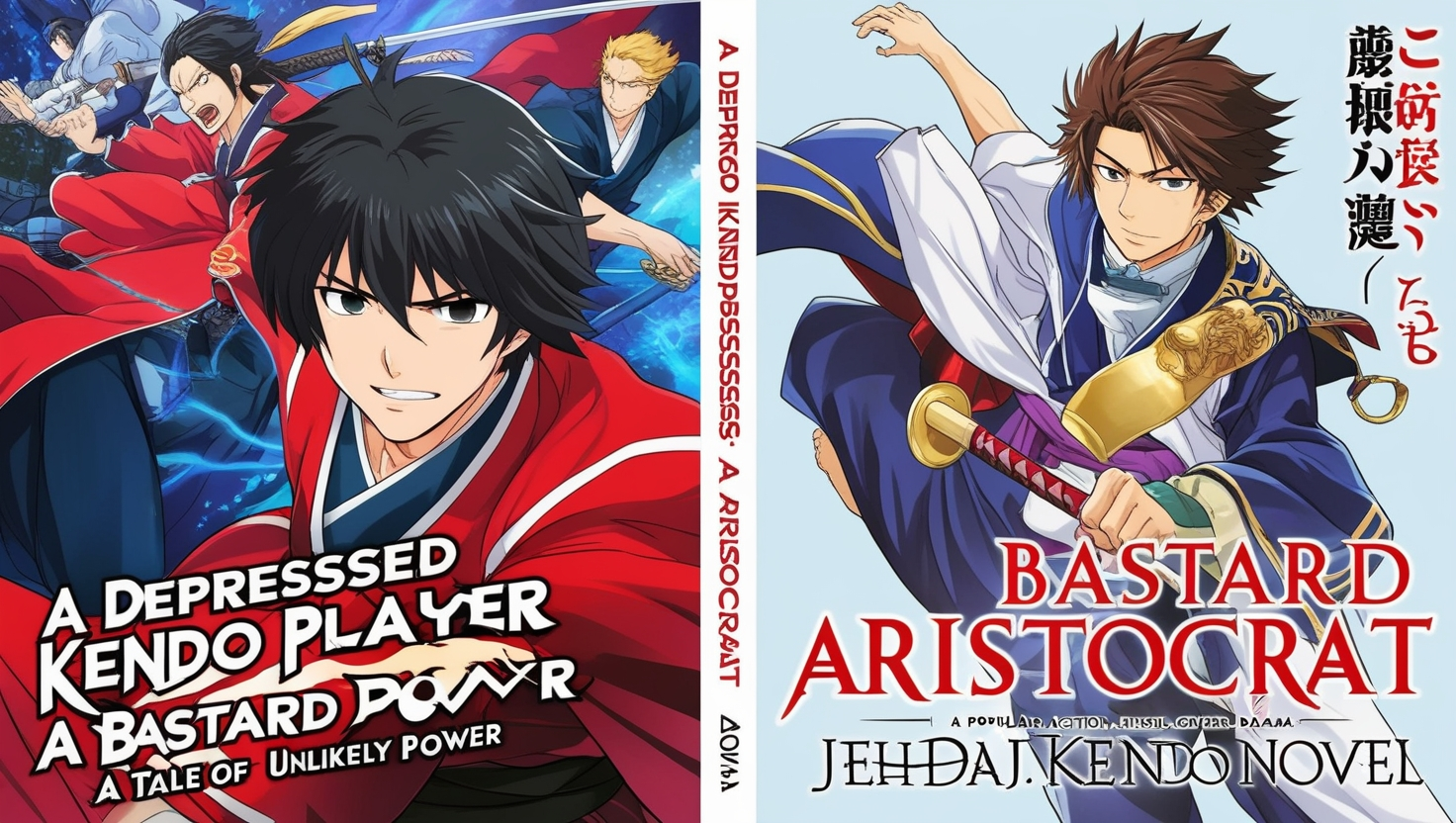Introduction
The phrase “a depressed kendo player possesses a bastard aristocrat” might sound like the opening of a fantastical novel. Still, it carries more profound meaning when explored through the lens of mental health, martial arts, and societal dynamics. This article will discuss how this seemingly peculiar combination of characters reflects broader themes of power, personal struggle, and societal expectations.
The Depressed Kendo Player: Struggling for Meaning
Kendo, the traditional Japanese martial art of sword fighting, is known for its discipline, precision, and rigorous mental focus. Practitioners often immerse themselves in the art to sharpen their skills, but not all journeys are smooth. In our story, “a depressed kendo player possesses a bastard aristocrat,” the protagonist struggles with depression despite excelling at a sport that demands high levels of concentration and inner peace.
Depression, a global mental health issue, can affect even the most disciplined individuals. A kendo player whose entire life revolves around maintaining balance and control can find themselves at odds with feelings of despair and hopelessness. This inner turmoil speaks to the complexity of depression—it affects everyone, even those who seem to have a firm grip on their external lives.
In this narrative, the phrase “a depressed kendo player possesses a bastard aristocrat” becomes a metaphor for the tension between inner chaos and outward strength. The kendo player’s sword mastery may symbolize external control, but the emotional battle within remains unresolved.
The Bastard Aristocrat: Symbol of Power and Exclusion
Aristocracy has long been associated with power, privilege, and societal control. However, the concept of a “bastard aristocrat” refers to someone who, despite their noble lineage, finds themselves excluded from traditional power structures due to the circumstances of their birth. In this context, “a depressed kendo player possesses a bastard aristocrat” suggests an unlikely shift in power dynamics.
The bastard aristocrat represents a paradox: someone born into privilege but denied the full benefits of their heritage. While they may carry the title or connections of nobility, their illegitimacy keeps them on the fringes of power. For the kendo player in this story, possessing such a person signifies a reversal of roles. The one suffering from depression—a condition often linked with feelings of powerlessness—now holds influence over someone who, despite their status, cannot fully access the privileges of their birthright.
In many ways, the bastard aristocrat can be seen as a reflection of the kendo player’s internal battle. Just as the aristocrat struggles with societal exclusion despite their noble blood, the kendo player battles feelings of inadequacy and depression despite their physical mastery and outward control.
The Unlikely Bond Between Two Outcasts
The relationship described in “a depressed kendo player possesses a bastard aristocrat” can be interpreted as a union of two marginalized individuals—both of whom are grappling with their unique struggles. One suffers from the emotional weight of depression, while the other is ostracized by society due to their illegitimacy. Together, they form an unusual alliance bound by their shared experiences of exclusion and hardship.
In this context, possession does not necessarily refer to physical ownership, but rather the control or influence one can wield over another. Through their sense of control derived from the martial arts, the kendo player finds themselves in a position of dominance over the aristocrat. However, this dynamic is not exploitation; instead, it reflects a complex interdependence, and both individuals can help each other cope with their respective challenges.
A Story of Empowerment and Redemption
As the narrative of “a depressed kendo player possesses a bastard aristocrat” unfolds, it becomes clear that the story is one of empowerment and redemption. Despite their mental health struggles, the kendo player learns to harness their inner strength through their relationship with the aristocrat. On the other hand, the aristocrat finds solace and purpose in being possessed—not in the traditional sense, but in finding someone who values them despite their flawed heritage.
Both characters find redemption in each other. The kendo player, who may have once felt lost in their depression, discovers a sense of responsibility and power in guiding the aristocrat. The bastard aristocrat, who once felt abandoned by society, finds new meaning in their connection with the kendo player. This unlikely bond between two outcasts creates a powerful healing and personal growth narrative.
Social Commentary Embedded in the Story
The phrase “a depressed kendo player possesses a bastard aristocrat” is also ripe for social commentary. It highlights the societal structures that often push individuals to the fringes, whether through mental illness or issues of birthright. The story critiques systems that value individuals based on their ability to conform to specific roles or statuses.
In many cultures, depression remains a taboo subject, especially in disciplines like martial arts, where emotional vulnerability is seen as a weakness. The kendo player’s struggle with depression, therefore, mirrors the challenges many face in confronting their mental health within rigid societal structures. Meanwhile, the aristocrat’s struggle with their illegitimacy reflects broader issues of social exclusion and the way society often shuns those who do not meet its narrow definitions of worth.

Conclusion: The Power of Unlikely Alliances
In the end, “a depressed kendo player possesses a bastard aristocrat” is a powerful metaphor for how individuals from different walks of life can overcome their struggles. While the phrase “a depressed kendo player possesses a bastard aristocrat” may seem unusual at first glance, its deeper meaning resonates with themes of power, mental health, societal exclusion, and redemption.
The bond between the depressed kendo player and the bastard aristocrat challenges traditional notions of strength and control. Instead of being defined by their limitations, both characters find empowerment in each other’s flaws, ultimately creating a narrative that speaks to the resilience of the human spirit.
This unique storyline, “A depressed kendo player possesses a bastard aristocrat, ” reminds us that healing and strength can often be found in the most unexpected places and that even the most marginalized individuals have the potential to wield great power.
